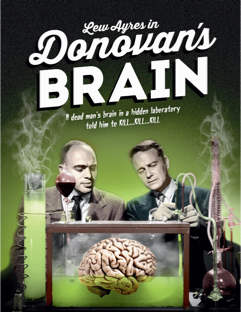Performing Brains on Screen, a book under contract with the series “Film Culture in Transition” of Amsterdam University Press, deals with film enactments and representations of the idea that human beings are essentially their brains. In the contemporary world, the claim that “you are your brain” embodies one of the most widespread and influential ways of understanding the human. It began to acquire prominence in the nineteenth century, but has become truly global since the “Decade of the Brain” of the 1990s and the increase in the range of application of brain imaging technologies. Motion pictures have performed brains in two chief ways: by turning physical brains into protagonists, as in the “brain movies” of the 1950s, which show disembodied brains of terrestrial or extra-terrestrial origin carrying out their generally evil intentions; or by giving brains that remain unseen inside someone’s head an explicitly major role, as in brain transplantation films or their successors since the 1980s, in which brain contents are transferred and manipulated by means of information technology. Through an analysis of filmic genres and particular movies, Performing Brains on Screen documents this neglected filmic universe, and demonstrates how the cinema has functioned as a cultural space where a core notion of the contemporary world has been assumed and conveyed, and at the same time problematized and challenged.

